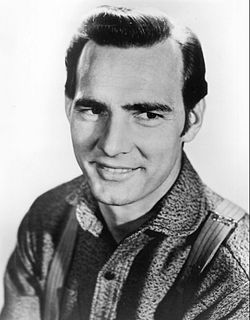A Quote by Christopher Voss
The first and best way to say 'no' to anyone is, 'How am I supposed to do that?' Now the other side actually has no idea as to the number of things you've done with them at the same time. You conveyed to them you have a problem.
Related Quotes
A lot of people don’t just go ahead and try things. They’ll have an idea and they’ll say — they’ll convince themselves or other people will convince them that it can’t be done. You know, one or the other. Actually I think that the first is even more dangerous and more serious. It’s convincing yourself that it can’t be done.
My family spent many years sleeping side by side in the same room. It's important for me to not separate myself from them or to say that I've suffered more than they have because I'm gay. We all suffered from the same political rejection, and from poverty. When you're starving with eleven other people in the same room, you become connected to them forever. We were all hungry at the same time.
I am not keen on the idea of an oversharer. I don't like that as a problem. I have more of a problem with an undershare. If I'm talking to somebody and I ask them how their love life is and they say "fine," that's a problem for me. I want to know things about people, I feel like we're all here on this planet, and intimacy is important.
I used to say to my dad, 'How did you and Mom stay married for all this time?' and he'd say, 'Two things. Number one: You gotta have the same dreams. One person can't be daydreaming about walking down the street in Paris, the other person want to work in a coal mine. Number two: We never wanted to get divorced at the same time.'
Now, I went into the Army as a Republican, I came out as a Democrat, and it completely changed my outlook on a lot of things. And when you live side by side with your fellow soldiers and you realize that they're not a number, that they're actually human beings and they have families, it's a lot harder, I think, to talk about sending them to die for things that aren't really that important.
Both of our political parties, at least the honest portion of them, agree conscientiously in the same object: the public good; but they differ essentially in what they deem the means of promoting that good. One side believes it best done by one composition of the governing powers, the other by a different one. One fears most the ignorance of the people; the other the selfishness of rulers independent of them. Which is right, time and experience will prove.
When you have an authority figure tell you something that distinguishes you, there's a little bit of a badge of courage or pride point that comes with it, and also some relief that the grownups actually have an answer for the problem. But, at the same time, there's suspicion and defensiveness, like, Why is the way I do things a problem? Maybe the way you do things is the problem. All of these things come with the very notion that you've been described.
I'm eighty-three and homeless. It was the same when World War II ended. The Army kept me on because I could type, so I was typing other people's discharges and stuff. And my feeling was "Please, I've done everything I was supposed to do. Can I go home now?" That what I feel right now. I've written books. Lots of them. Please, I've done everything I'm supposed to do. Can I go home now? I've wondered where home is. It's when I was in Indianapolis when I was nine years old. Had a dog, a cat, a brother, a sister.
Write down the most important things you have to do tomorrow. Now, number them in the order of their true importance. The first thing tomorrow morning, start working on an item Number 1, and stay with it until completed. Then take item Number 2 the same way. Then Number 3, and so on. Don't worry if you don't complete everything on the schedule. At least you will have completed the most important projects before getting to the less important ones.
I'm working on a number of different things. I'm working on a couple of TV things and I'm working on a couple of film things too, and they're all very early stages. One of them I'm writing myself, one of them I'm writing with somebody else, and one of them I'm supervising a writer, and they're all sort of coming up at the same time and it'll be interesting to see which one kind of reveals itself first and jumps ahead.
When my mom was sick and in the hospital, I did for the first time feel really bad that a lot of men aren't taught how to take care of other people very well. It's not as important of a skill for them as other things, in the same way that I really resent not being given a toolbox when I was younger.
The argument culture urges us to approach the world - and the people in it - in an adversarial frame of mind. It rests on the assumption that opposition is the best way to get anything done: The best way to discuss an idea is to set up a debate; the best way to cover news is to find spokespeople who express the most extreme, polarized views and present them as 'both sides'; the best way to settle disputes is litigation that pits one party against the other; the best way to begin an essay is to attack someone; and the best way to show you're really thinking is to criticize.
I think there will come a time when civilized people will look back in horror on our generation and the ones that have preceded it; the idea that we should eat other living things running around on four legs, that we should raise them just for the purpose of killing them! The people of the future will say 'meat-eaters' in disgust and regard us in the same way that we regard cannibals and cannibalism.
It's great that the Internet can enhance and speed up our communications and that computers can do all the things they do. It's fabulous. At the same time, it changes our priorities. For example, before I would always remember people's telephone numbers and now I don't know anyone's number. So what happens if computer systems go down but you still have landlines? Well, I couldn't call anyone because I don't know anyone's number.



































